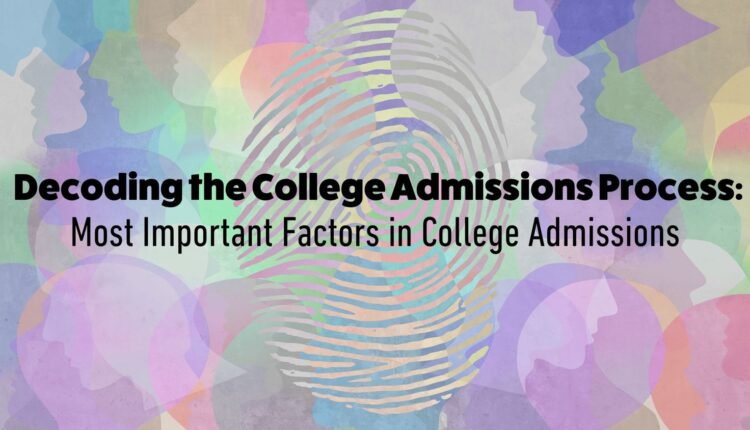College applications can be stressful. Many schools have varying deadlines and requirements. It’s important to double-check the application requirements for each school on your list. It’s also a good idea to thoroughly proofread all written components (essays, short answers, extracurricular activities lists) for grammatical errors. Typos and sloppy writing can detract from an otherwise strong application.
The Common Application
The Common Application allows students to submit applications to over 900 colleges from around the world using one centralized platform. This eliminates the need to fill out multiple institutional applications, which can save time and energy during a hectic College applications process. In addition, the Common App features a helpful mobile application that can help students stay organized and on track throughout their applications.
To begin, students must create an account on the Common App website and select their type of application. They will then be prompted to choose login credentials and a password, as well as set their communication preferences and accept the Common App’s privacy policy. Students should be sure that they use an email address that they check regularly and don’t mind admissions counselors seeing, as colleges may contact them through this channel.
In the Profile section, students will provide general information about themselves, including their name, birth date, high school, GPA, test scores, and activities. This is a good place for students to review their information and ensure that it is accurate and up-to-date. It’s also a good idea to use consistent capitalization and punctuation across the Profile and all submitted materials, such as recommendation letters and transcripts, in order to avoid any confusion or mix-ups.
The Coalition Application
The Coalition Application is less well known than the Common App, but it is growing in popularity. It is free to use, and it offers planning tools like the Locker and Collaboration Space. Students are encouraged to set up their accounts as early as freshman year, and to periodically add to them throughout high school. The Locker is a digital space where students can store important documents and media, including papers they’re proud of, awards they’ve won, and video performances they’ve taken part in. This can help students organize their applications, and it can also be used as a supplement to other applications.
The Coalition Application also includes supplementary essay prompts, and it offers a streamlined recommender system. However, it’s important to note that not all colleges accept the Coalition Application. It is best to choose this application only if your top-choice schools do. And be sure to check with each college’s individual application requirements, as they may have unique requirements.
The Independent Application
For students applying to independent schools, the Standard Application Online (SAO) streamlines every application step. Accepted at over 400 independent schools, the SAO connects families with their admission teams and saves them time by collecting essays, recommendations, transcripts, and tax information in one place. In order to qualify as independent for financial aid purposes, a student must be supporting himself or herself, not living with parents, and have a legal guardian who is not a parent (biological, adoptive, or otherwise). On a case-by-case basis, the federal Department of Education may grant exceptions for other circumstances.
Before submitting an application, make sure it is formatted according to the guidelines, punctuation error-free, and clear to read. It’s also a good idea to have someone with fresh eyes look it over. They can help ensure that the application is logically written and easy to follow, as well as provide feedback on if the content is persuasive. Click to learn how EMA’s college counseling services can help your family.
The Ivy League Application
Many students dream of attending one of the eight prestigious schools that comprise the Ivy League. To make it into a Yale, Princeton, or Harvard, you need more than high test scores and an impressive list of extra-curricular activities. Ivy League students get mentorships from world-class professors, and access to incredible research opportunities and unparalleled resources for student support. As a result, there is an entire industry of consultants offering sure-fire SAT prep and amazing ACT prep.
In addition to the Common Application, Ivy League schools require supplemental essays with topics that change annually. These are a chance for students to show that they’re passionate about their chosen school and can offer unique perspectives on their education, community, and career. Applicants should ensure that all components of their application work together to tell a coherent and compelling story about their passions, goals, and experiences. Especially when applying to Ivy League schools, a single small error can be enough to knock a student off the list.
Conclusion
College applications are the main way students submit materials to the schools they’re applying to. They often include information like high school and previous college transcripts, lists of extracurricular activities, and letters of recommendation from teachers and counselors. Most colleges also ask for a personal essay or statement of purpose. Work on the essay early, prioritizing the grammar and writing skills you’ll need to craft a compelling personal statement.


Comments are closed.